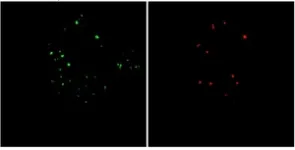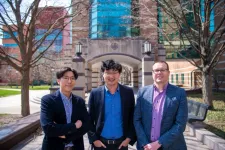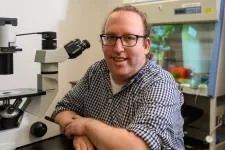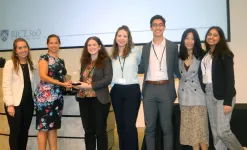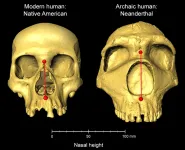(Press-News.org) The University of Minnesota Twin Cities announced that it will receive a $20 million grant over five years from the National Science Foundation (NSF) and the U.S. Department of Agriculture’s (USDA) National Institute of Food and Agriculture (NIFA) to lead a new National Artificial Intelligence Research Institute.
Researchers at the AI Institute for Climate-Land Interactions, Mitigation, Adaptation, Tradeoffs and Economy (AI-CLIMATE) aim to leverage artificial intelligence (AI) to create more climate-smart practices that will absorb and store carbon while simultaneously boosting the economy in the agriculture and forestry industries.
The new institute is one of seven new NSF- and NIFA- funded AI Institutes announced today and is part of a larger federal initiative—totaling nearly half a billion dollars—to bolster collaborative artificial intelligence research across the country.
AI-CLIMATE is a joint effort between the University of Minnesota Twin Cities College of Science and Engineering; Minnesota Robotics Institute; Data Science Institute; College of Food, Agricultural, and Natural Resource Sciences; and the Office of the Vice President for Research. It will also bring together scientists and engineers from across the country, including national experts on artificial intelligence and climate-smart ag and forestry from Cornell University, Colorado State University, Delaware State University, Purdue University, and North Carolina State University. In addition, the researchers will collaborate with the American Indian Higher Education Consortium (AIHEC) and the tribal nations it represents.
“One of the driving factors of climate effects is carbon emissions,” said Shashi Shekhar, director of the institute and a professor in the University of Minnesota Department of Computer Science and Engineering. “By 2050, the United States aims to have net zero carbon emissions, and one of the most promising ways to do this is using natural systems like forestry and agriculture as ‘carbon sinks.’”
Farms and forests can be used as carbon sinks, which pull more carbon dioxide out of the atmosphere than they release. Farmers and foresters may be rewarded for doing this through carbon markets, or systems in which property owners can sell “carbon credits”—equal to the amount of carbon dioxide their farm or forest has sequestered—to companies trying to offset their carbon emissions. However, with current technology, it’s both difficult and expensive for farmers and foresters to accurately measure how much carbon they’ve sequestered.
Using new AI techniques like deep learning and knowledge-guided machine learning, researchers at the AI-CLIMATE institute are improving accuracy and lowering the cost of accounting for carbon and greenhouse gases in farms and forests, ultimately making the process more accessible for more people.
“When farmers touch, smell, and look at the soil, they can tell if it’s carbon rich or not,” Shekhar said. “But, they can’t manually survey thousands of acres of land every year. We’re developing easy-to-use tools where we can show all of these measurements and images of the soil to an AI neural network and let it figure it out for us, saving farmers and foresters time, energy, and money."
The goals of AI-CLIMATE directly intersect with what other federal programs are doing to further develop climate-smart agriculture. In 2022, the United States Department of Agriculture announced that it would be investing $3.1 billion to support farmers, ranchers, and private forest landowners through its Partnerships for Climate-Smart Commodities project.
“In the tradition of USDA National Institute of Food and Agriculture investments, this new institute leverages the scientific power of U.S. land-grant universities, informed by close partnership with farmers, producers, educators and innovators to address the grand challenge of rising greenhouse gas concentrations and associated climate change,” said Dionne Toombs, acting director of NIFA. “This innovative center will address the urgent need to counter climate-related threats, lower greenhouse gas emissions, grow the American workforce, and increase new rural opportunities.”
"Foundational research in AI and machine learning has never been more critical to the understanding, creation, and deployment of AI-powered systems that deliver transformative solutions across our society," said Margaret Martonosi, NSF assistant director for computer and information science and engineering. “These recent awards, as well as our AI Institutes ecosystem as a whole, represent our active efforts in addressing national economic and social priorities that hinge on our nation’s AI capability and leadership.”
END
University of Minnesota to lead new $20M AI Institute focusing on climate-smart agriculture and forestry
The new AI-CLIMATE institute will leverage artificial intelligence to create more sustainable agriculture and forestry industries
2023-05-08
ELSE PRESS RELEASES FROM THIS DATE:
Hispanic women face inequities affecting maternal health outcomes
2023-05-08
DALLAS, May 8 2023 — Cardiovascular disease is the No. 1 killer of new moms.[1] The American Heart Association, through the new campaign, “My health is our health”/ “Mi salud es nuestra salud” is raising awareness among Hispanic/ Latina moms, especially during pregnancy, about the importance of managing their blood pressure. On average, about one in every 16 Hispanic women aged 20 and older have coronary heart disease, the most common type of heart disease.[2]
Hispanic/Latina mothers hold a special place in their homes when it comes to family decisions. They are considered the head of the family for their key role in raising children and ...
Mirror, mirror: A new way to recognize reverse-image molecules
2023-05-08
Recognizing and separating enantiomers is a difficult task for chemical engineers — one might say it gives them a bit of a headache.
Enantiomers are molecules with virtually identical compositions that mirror one another, like a left and right hand. In chemistry, this property is called chirality. Despite the similarities in their makeup, so-called left- and right-handed enantiomers often exhibit very different properties. Sometimes a drug has an enantiomer that causes undesirable effects. For example, certain drugs have one enantiomer that can cause a headache, ...
Experimental model gets cells to behave as they would in utero
2023-05-08
HOUSTON – (May 8, 2023) – Many birth defects and spontaneous abortions occur during the embryonic development stage known as neurulation, yet we have very little insight into how this critical developmental process unfolds in humans.
The Rice University lab of Aryeh Warmflash has received a five-year, $1.9 million grant from the National Institutes of Health to optimize and develop experimental cell models that can shed light on the self-organizing processes by which ectodermal ...
U of M researchers develop technique for rapid detection of neurodegenerative diseases like Parkinson’s and Chronic Wasting Disease
2023-05-08
University of Minnesota Twin Cities researchers have developed a groundbreaking new diagnostic technique that will allow for faster and more accurate detection of neurodegenerative diseases. The method will likely open a door for earlier treatment and mitigation of various diseases that affect humans, such as Alzheimer's and Parkinson's, and similar diseases that affect animals, such as chronic wasting disease (CWD).
Their new study is published in Nano Letters, a premier journal in the field of nanotechnology published by the American Chemical Society.
“This paper mainly ...
Rice University students design congenital hypothyroidism test for newborns
2023-05-08
HOUSTON – (May 8, 2023) – For newborns with congenital hypothyroidism, early diagnosis spells the difference between a normal, healthy life and lifelong disability.
After learning about the heavy toll the disease takes on children born in parts of the world where testing is limited or absent, a team of Rice University students came together to develop a low-cost screening tool that can detect abnormally high thyroid-stimulating hormone (TSH) levels indicative of dysfunction.
The point-of-care, paper-based test developed ...
Culture, diet, economic factors and more affect CVD risk among Asian Americans
2023-05-08
Statement Highlights:
Health research that considers Asian Americans as a single race and ethnic group may result in over- or under-estimating the risk of Type 2 diabetes and cardiovascular disease among people of diverse Asian American subgroups, by geographic region of descent.
Together, cardiovascular disease and Type 2 diabetes are the leading causes of death and disease in Asian American adults, however, rates vary widely among subgroups. For example, the latest data on the prevalence of Type 2 diabetes in Asian American adults, ages 45-84, reveals a range of Type ...
Nose shape gene inherited from Neanderthals
2023-05-08
Humans inherited genetic material from Neanderthals that affects the shape of our noses, finds a new study led by UCL researchers.
The new Communications Biology study finds that a particular gene, which leads to a taller nose (from top to bottom), may have been the product of natural selection as ancient humans adapted to colder climates after leaving Africa.
Co-corresponding author Dr Kaustubh Adhikari (UCL Genetics, Evolution & Environment and The Open University) said: “In the last 15 years, since the Neanderthal genome ...
Immunotherapy plus chemotherapy combination for advanced lung cancer not only prolongs life but also improves its quality
2023-05-08
A recent clinical trial showed that the drug combination of cemiplimab plus platinum chemotherapy can prolong survival in patients with advanced lung cancer when compared with placebo plus platinum chemotherapy. Now an analysis published by Wiley online in CANCER, a peer-reviewed journal of the American Cancer Society, indicates that cemiplimab plus platinum chemotherapy also affects quality of life compared to chemotherapy alone.
The multinational phase 3 EMPOWER-Lung 3 trial had shown that the addition ...
Organoids derived from patient tissues support personalized cancer treatment
2023-05-08
Chicago (May 2, 2023) — Researchers created organoids from cancer cells to reduce the need for trial and error in identifying effective cancer treatments in one of many cancer studies scheduled for presentation this week at Digestive Disease Week® (DDW) 2023.
Below are summaries of three studies scheduled for DDW, their embargo times and presentation times at the meeting in Chicago May 6-9.
Personalized drug screening in patient-derived organoids of biliary tract cancer and its clinical application
Chemotherapy is often the only treatment option for biliary tract cancer, which is usually found at a late stage, making it one of the most lethal ...
Cognitive behavioral therapy lessens post-viral fatigue after COVID-19
2023-05-08
Those with post-viral fatigue after suffering from COVID-19 benefit from cognitive behavioural therapy, resulting in less fatigue and concentration problems. Lead researcher, Hans Knoop, Professor of Medical Psychology at Amsterdam UMC found that “After behavioural therapy, patients not only had less symptoms but also functioned better both physically and socially. Those improvements were still present even after six months.” Today, research from Amsterdam UMC, RadboudUMC and three other hospitals is published in Clinical Infectious Diseases.
After a COVID-19 infection, a substantial number of patients report persisting symptoms. This is often known as long-COVID or ...
LAST 30 PRESS RELEASES:
New knowledge on heritability paves the way for better treatment of people with chronic inflammatory bowel disease
Under the Lens: Microbiologists Nicola Holden and Gil Domingue weigh in on the raw milk debate
Science reveals why you can’t resist a snack – even when you’re full
Kidney cancer study finds belzutifan plus pembrolizumab post-surgery helps patients at high risk for relapse stay cancer-free longer
Alkali cation effects in electrochemical carbon dioxide reduction
Test platforms for charging wireless cars now fit on a bench
$3 million NIH grant funds national study of Medicare Advantage’s benefit expansion into social supports
Amplified Sciences achieves CAP accreditation for cutting-edge diagnostic lab
Fred Hutch announces 12 recipients of the annual Harold M. Weintraub Graduate Student Award
Native forest litter helps rebuild soil life in post-mining landscapes
Mountain soils in arid regions may emit more greenhouse gas as climate shifts, new study finds
Pairing biochar with other soil amendments could unlock stronger gains in soil health
Why do we get a skip in our step when we’re happy? Thank dopamine
UC Irvine scientists uncover cellular mechanism behind muscle repair
Platform to map living brain noninvasively takes next big step
Stress-testing the Cascadia Subduction Zone reveals variability that could impact how earthquakes spread
We may be underestimating the true carbon cost of northern wildfires
Blood test predicts which bladder cancer patients may safely skip surgery
Kennesaw State's Vijay Anand honored as National Academy of Inventors Senior Member
Recovery from whaling reveals the role of age in Humpback reproduction
Can the canny tick help prevent disease like MS and cancer?
Newcomer children show lower rates of emergency department use for non‑urgent conditions, study finds
Cognitive and neuropsychiatric function in former American football players
From trash to climate tech: rubber gloves find new life as carbon capturers materials
A step towards needed treatments for hantaviruses in new molecular map
Boys are more motivated, while girls are more compassionate?
Study identifies opposing roles for IL6 and IL6R in long-term mortality
AI accurately spots medical disorder from privacy-conscious hand images
Transient Pauli blocking for broadband ultrafast optical switching
Political polarization can spur CO2 emissions, stymie climate action
[Press-News.org] University of Minnesota to lead new $20M AI Institute focusing on climate-smart agriculture and forestryThe new AI-CLIMATE institute will leverage artificial intelligence to create more sustainable agriculture and forestry industries

